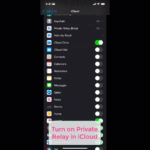The world of browsers and how they work is both complex and fascinating. For those that are new to the browser engine landscape, Google, Apple, and many others collaborated on an open source web rendering engine for many years known as WebKit. WebKit has active community with many less well known browsers that use it, so the WebKit community was shocked when Google announced they would fork WebKit into a new engine for Chrome called Blink.
Emphasis for implementing WebRTC shifted with Google into Blink at the expense of WebKit. To date, Apple has not given any indications it was going to add WebRTC into WebKit (see this post for an idea on nudging them). This is not good for the eclectic WebKit development community that would like to start working with WebRTC or those hoping for WebRTC support in Apple’s browsers.
Then an interesting project by Ericsson, Temasys, and Igalia was announced – webrtcinwebkit. As the name implies, the goal of this project was to put WebRTC in WebKit, by themselves. Many questions come to mind, but the most important may be is this a worthwhile effort and one that other WebRTC developers should be involved in?
I asked webrtcinwebkit contributors Alex Gouaillard and Stefan Håkansson to give some more background and help answer who should care about this project and why they are working on this.
{“intro-by”, “chad hart“}
webrtcHacks: For those who are not familiar, can you describe the webrtcinwebkit project?
Alex: webrtcinwebkit is a project aiming at bringing WebRTC support in WebKit which is the foundation of a lot of web browsers like Safari and web browsing frameworks like WebView used extensively in Mobile applications.
webrtcHacks: How did this come together? Who are the major contributors to this project?
Alex: in 2014, Ericsson had an initial implementation to flesh out and was thinking about open sourcing the underlying engine now known as OpenWebRTC. Igalia’s Philippe Normand had been trying to integrate WebRTC in WebKitgtk+ using Ericsson’s 2011 code base for some time, Temasys was trying to find a way to enable WebRTC in iOS and remove the need for a plugin in desktop Safari. At a W3C meeting in Santa Clara in November 2014, a discussion happened with an Apple employee that make the parties believe that there was a way. The project was born.
webrtcHacks: Why do you think Apple has not implemented WebRTC already? How will webrtcinwebkit change that?
Alex: Those who know can’t talk and those who talk likely don’t know.
Our answer is: we don’t know for sure.
webrtcHacks: How much of this project is about Apple vs. other WebKit users?
Alex: Not at all about Apple. We’re working on adding WebRTC API’s to WebKit, and to back it with OpenWebRTC for the WebKitgtk+ port. To what extent other ports make use of the WebRTC API’s is up to them, but of course we hope they will use them.
webrtcHacks: was there a lot of WebRTC in WebKit already from before Google forked blink?
Stefan: Yes, there was quite a bit of WebRTC in there, contributed by Ericsson, Google, Igalia and others. Some parts can be re-used, but largely the standard has evolved so much that we had to start over.

webrtcHacks: Can you comment on how your perspective of how Google’s forking of webkit has impacted the webkit community? Isn’t everyone just moving to blink now?
Stefan: Just looking at the revision history of the WebKit source code will immediately show that the WebKit project is very much alive.
webrtcHacks: Is there value in webrtcinwebkit for other developers even if Apple ignores this?
Alex: the WebKit community itself is pretty big, and again as far as mobile and embedded devices are concerned, this is the main way of handling web pages. Whether Apple adopt the changes or not, this is good news for many people.
Stefan: I agree fully. I would also like to add the value for the WebRTC community and the standardization effort of a second, independent implementation, as the initial back end used will be OpenWebRTC. The current WebRTC implementations in Chrome, Firefox and Opera all to a large extent use the same webrtc.org backend so we think it is a point in using OpenWebRTC as the backend as it gives a second, truly independent, implementation of the standard.
webrtcHacks: How much effort is going into this project? Is it staffed adequately for success?
Alex: Everybody is working on separate projects, so depending for example if you count people working on OpenWebRTC as being part of this project or not, the count will change. There are roughly the following Full-time-equivalent (FTE) staff:
- 4 at Ericsson
- 2 Ericsson contractors
- 2 Temasys
- 1 Igalia
Not all FTE are equal contributors though and the main technical leaders (for WebKit) are with Ericsson and Igalia.
webrtcHacks: How long will it take to complete?
Alex: We have a version that includes getUserMedia already working a demoable in a separate fork. Ericsson is polishing the PeerConnection, while Temasys is handling Datachannel. It then takes a little bit of time to submit patches to upstream WebKit, so the nightly version of WebKit is still behind. OpenWebRTC and webrtc in WebKit is based on a very recent version of GStreamer, and updating that component in WebKit as far reaching consequences. It touches all the media functionalities of WebKit. We think this will take some time to get in, then the following patches should be self contained and easier to push. We aim at a June timeline.
webrtcHacks: I have heard many comments about GStreamer not being appropriate for real time applications. Can you address that topic?
Stefan: That does not match our experience at all. We’ve been using GStreamer for many real time applications since back in 2010 when we showed our first implementation of what eventually became WebRTC, and we’ve consistenly got good real time performance. The fact that there is a lively GStreamer community is also a big plus, that enabled OpenWebRTC to quickly make use of the HW accelerated video codec that became available in iOS 8 – something I have heard webrtc.org still doesn’t for example.
webrtcHacks: How tightly coupled is webrtcinwebkit with OpenWebRTC? Is webrtcinwebkit really a derivative and dependant on OpenWebRTC?
Stefan: Although our initial implementation is backended by OpenWebRTC, the project is designed to fully support other implementations, so no, webrtcinwebkit is not a derivative on OpenWebRTC.
Alex: Given enough time (and resource), the original plan was to have two back ends for webrtcinwebkit: both OWR from OpenWebRTC and libwebrtc from webrtc.org. It’s not clear yet if we will be able to make it happen, but it’s still a wish.
| Browser | Engine | Share |
| Chrome | Blink | 41% |
| IE | Trident | 14% |
| Safari | Webkit | 14% |
| Android Browser | Webkit | 7% |
| Firefox | Gecko | 12% |
| Opera | Blink | 4% |
| UC Browser | ?? | 3% |
| Nokia | Webkit | 1% |
Browser Usage Share – May 2014 to Apr 2015
Source: http://gs.statcounter.com/#all-browser-ww-monthly-201405-201504-bar
webrtcHacks: How has the community developed in the month since you launched this project? How many contributors are outside of Ericsson and Temasys?
Alex: We announced the project before before it was ready for others to contribute. Most of the WebRTC ecosystem was under the impression there was nothing being done on that side, which was just not true. We wanted to let people know something was brewing, and that they would be able to contribute soon. We also wanted to welcome early feedback.
We received a lot of interest by e-mail, from different companies. We eventually made our fork of WebKit, our working copy if you wish, public on GitHub. Today anybody can make a pull request. That being said, we believe it would be better to wait until we have a first implementation of getUserMedia, PeerConnection and DataChannel before they jump in. For most of the work, you need a first implementation of Offer/Answer, and the capacity to see on screen the video streams, or hear the audio stream before you can start to debug. That should happen in a matter of weeks now.
webrtcHacks: What does success of this project look like? How will you know when this succeeds?
Alex: As soon as WebKitgtk+, one of the default Linux browsers, supports WebRTC, we think it will be a success. Eventually seeing other ports – other browsers using WebKit adopting those changes will be very gratifying too.
{“interviewer”, “chad hart“}
{“interviewees”, [“Alex Gouaillard“, “Stefan Håkansson“]}







Leave a Reply